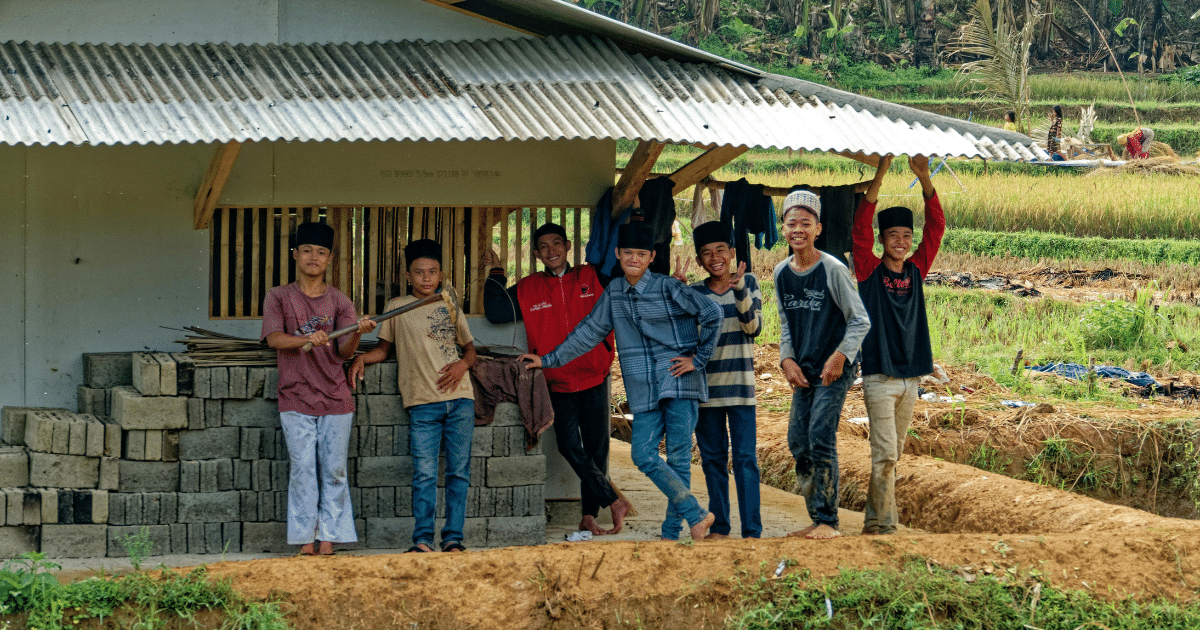Raising a tween is a challenge not many people expect – you often hear how hard it is to raise a small child and deal with a teenager but the issues and demands that take place when your kid is between the stages of childhood and adolescence are often ignored, misunderstood, and disregarded.
In this article we will take a closer look at the transformative phase of early adolescence, examine the tween parenting problems, and figure out how you can be a better mother or father to your child as they approach puberty.
What Is a Tween?
When it comes to the definition of tween, there are different viewpoints. Some people use the word “tween” to describe a kid between the ages of nine and twelve while others believe this stage begins at eight and ends at thirteen. What is certain, however, is that this stage is transitional in the life of a young person – they are not as helpless as small children and not as eager to be independent as teenagers.
Tween Development and Growth
The emotional, social, and cognitive development of a pre-teen is of paramount importance. The child is gaining more independence, they are more aware of their own emotions and their social status, and they discover new horizons as they are prepared to enter adolescence.
Endless emotional ups and downs due to hormone fluctuations, concerns about physical appearance, and potential conflicts with parents and siblings are never easy. Unfortunately, many pre-teens have suicidal ideations caused by anxiety and depression they develop at this stage of life. This should motivate any parent who worries about the present and future of their child to take care of them and allow them to thrive on their own terms.
Differences Between Classical and Operant Conditioning in Tween Learning
Associative learning of a tween comes in two different forms – classical learning and operant learning. Classical learning means subconscious or automatic learning – for example, a kid may be scared of large dogs if they were startled by a barking animal in the past.
Operant learning, on the other hand, refers to a learning process that modifies behavior through consequences – for instance, a tween may be more motivated to complete their homework on time if their teacher or parent praises their effort.
Both of these learning processes feature heavily in the classroom and in the household – you can influence the behavior and learning of a kid in a positive way for their own sake.
Activities That Stimulate Tween Interests and Creativity
Tweens’ activities are rarely interesting to their parents which often becomes an issue, especially if you want to spend quality time with your kid or exercise more control over them. Still, if you are willing to give your child an opportunity to enjoy their life and facilitate their emotional development, you should encourage them to take part in the following activities:
| Activity | Description |
| Outdoor Adventures | Give your child a chance to have a healthy and refreshing experience outside whether they are biking, exploring local parks, or hiking under the guidance of experienced adults |
| Team Sports | Physical activity is crucial for the physical development of a young kid – let them pick the sport they are interested in instead of trying to make your dreams come true by forcing them to do what they hate |
| Arts and Crafts | Once again, learn what kind of hands-on activity your kid would be interested in whether it is creating jewelry, painting, making collages, building models, or spending time on a complicated engineering project |
| Virtual Events and Activities | You will not need to introduce your child to online games and social media platforms – they already know what they want to do. But you can support their interests – emotionally and financially – if they participate in a gaming tournament, learn the basics of art and design, or teach themselves to create videos and apps at an early age |
Parenting Tips for Supporting Tweens Through Middle Childhood
Every parent can benefit from advice and support – here are just a few tips you should keep in mind when you are interacting with your tween:
| Advice | Description |
| Respect Their Independence | At this stage, a child stops relying on their family for everything and chooses to spend their time on their own or with their friends – do not think they do this to spite you, keep your distance, and let them have their secrets and maintain their privacy |
| Be Mindful of Your Emotions | Instead of overreacting, screaming, or trying to punish your kid every time you do not like something, you should take a step back to breathe and analyze your own reaction to a particular situation. Remain calm and lead by example |
| Be Ready for a Difficult Conversation | Whether you need to talk to your kids about the physical changes their bodies will go through during puberty or warn them about the dangers of alcohol and drugs, it is better if you share age-appropriate information with them and answer their questions |
| Praise and Encourage Your Children | Unfortunately, many parents focus on negative behavioral patterns only – they either forget or choose not to acknowledge positive behaviors their kids exhibit. Notice the good things your child does and specifically thank them for them or tell them you are proud |
| Spend Quality Time With Your Kids | If the distance between you and your child bothers you or they are reluctant to talk, it does not mean you should give up on hobbies and activities every family member can enjoy. Play sports, introduce them to useful household chores, or go for a walk or run together |
Social and Emotional Changes During Early Adolescence
Simply answering the question “What is a tween?” is not enough – it is essential to figure out what it means for their mental health. Pre-teens learn to navigate new challenges every day due to various changes in their social life and emotional growth:

- The focus of a tween shifts from their family to peers – they spend more and more time with people their own age.
- The kid develops autonomy and independence – they will challenge your authority and push for more freedom.
- Tweens learn to accurately perceive the social dynamics and feelings of other people.
- A child of that age shows interest in a romantic relationship and often begins to explore their sexual identity.
- Due to growing social awkwardness, it is much easier to offend or hurt a tween – they are more sensitive to a random situation or comment at this age.
- When puberty is around the corner, hormonal changes will cause mood shifts, intense emotions, self-doubt, and anxiety which are often dismissed by adults.
- A tween has an ever-growing need for peer acceptance – they are looking for their place in the world and want their friends to like them at any cost.
Learn to Encourage Positive Peer Relationships at Hillside Horizon for Teens
Whether your children need your guidance and support to deal with a specific problem or you are simply trying to create a more fulfilling life for your kids, talking to a mental health specialist is a good idea. Under the guidance of our therapists, you can pinpoint when middle childhood begins by figuring out the right answer to the question “What is a tween?”, address emotional struggles that prevent your child from enjoying their life, and foster trust and understanding between you and your loved ones. Contact Hillside Horizon for Teens today – together we can navigate any mental health challenges with greater ease and purpose.

FAQs
What are the key developmental milestones during tween years in pre-teens?
The beginning of puberty, striving for independence, increased sensitivity, emphasis on friendship, and a greater sense of responsibility and self-regulation are the most important milestones for a tween.
How do classical and operant conditioning impact tween learning and education?
Classical conditioning can work through positive or negative associations while operant conditioning relies on consequences that will shape the behavioral patterns of a pre-teen. As long as there is consistency and these learning processes are used responsibly and ethically, a child will benefit from this conditioning during middle childhood.
What activities are recommended for stimulating creativity and interests in tweens?
Encourage your kid to express themselves through art and design, let them spend time outside as much as possible, and give them an opportunity to do things they enjoy instead of forcing them to do something you want.
How can parents support their child’s emotional and social changes in early adolescence?
Make sure your kid knows they can openly talk to you about anything. Be mindful of your tone, show them respect, be a role model, and try to maintain a balance between physical, emotional, and cognitive health.
What strategies encourage positive peer relationships and social skills among preadolescents?
While most friendships begin in a classroom, it is easy to make friends through hobbies and activities a tween would enjoy outdoors or online – sharing interests with someone is a great way to build your confidence and meet like-minded individuals. Teach your child how to respect boundaries and be an example of positive and open communication in your own household.




